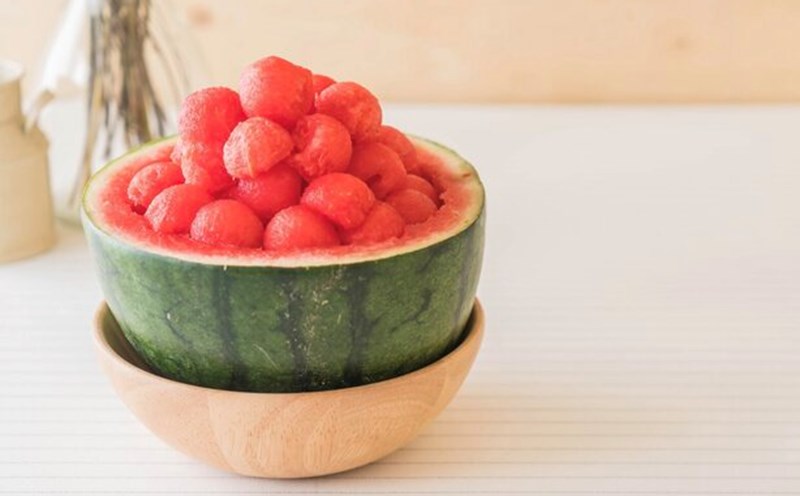Watermelon and catfish are two popular summer fruits, both serving thirst and supplementing nutrients. Both contain over 90% water, but according to health author Lana Barhum (USA), each type has different advantages when considering hydration, digestion support and antioxidant supply.
Water supply and electrolytes
Watermelon contains 91.4% water, while cantaloupe is 90%. In terms of electrolyte minerals, melon is better with more magnesium, potassium and sodium. This is an important factor for the body to recover after dehydration or heavy sweating.
A study published in the Journal of Agricultural and Food Chemistry showed that drinking watermelon juice helps meet energy needs, adds L-citrulline and L-arginine to the blood, and reduces inflammation after exercise.
Support digestion
Both watermelon and cantaloupe are easy to digest thanks to their high water content, but cantaloupe contains twice as much fiber (1.25 g/ cup) as watermelon (0.6 g/ cup).
Soluble fiber: Helps create a gel that slows digestion, regulates blood sugar and reduces cholesterol. Cantaloupe contains 0.3 g/ cup, watermelon 0.4 g in 1 1/4 cup.
Insoluble fiber: Supports increased stool volume and prevents constipation. Cantaloupe provides 0.8 g/ cup, 0.2 g higher than watermelon (0.2 g). Watermelon peel is a good source of this fiber.
In addition, watermelon contains polyphenols that act as prebiotics, feeding beneficial gut bacteria, helping to regulate bowel movements.
Anti-oxidant benefits
Watermelon is rich in lycopene and vitamin C, which help reduce inflammation, protect cells and support heart health by reducing cholesterol and blood pressure. Lycopene is also associated with a reduced risk of certain cancers (ct entrance, breast, cervical spine).
Cantaloupe is rich in vitamin C, zeaxanthin and beta-carotene, which help protect the eyes, reduce the risk of cataracts and macular degeneration. The plant compounds in melon also help reduce inflammation and improve skin health.
Comparison of nutrients (per cup)
Calories: Cantaloupe 59 kcal, watermelon 46 kcal
Fiber: 1.25 g (melon) vs 0.6 g (watermelon)
Potassium: 245 mg vs 170 mg
Vitamin A: Cantaloupe 362 IU, watermelon 865 IU
Lycopene: Watermelon 5,890 mcg, cantaloupe 0 mcg
How to add to your diet
Combining watermelon and melon in your diet can make the most of both benefits, says Dr. Sohaib Imtiaz, MD (USA). This is a low-calorie, rich, and easy-to-recharge option.
You can:
Eat directly as dessert or snack
Mix with yogurt, oatmeal, smoothies
Incorporate in salads to increase natural sweetness
According to the USDA Nutrition Guidelines 2020 - 2025, adults should consume 1.5 - 2 cups of fruit per day. Choosing a variety of watermelon and melon will help optimize hydration, digestion and overall health.







